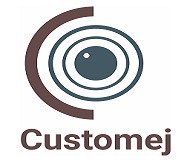There are unquestionably a lot of advantages that come along with having auto insurance for a vehicle’s owner alongside the benefit of car insurance check online availability. You must get at least the state-required minimum auto insurance for any car you purchase.
Before purchasing auto insurance, most people consult with a friend, relative, or another family member and then regret doing so. Not choosing your auto insurance in this manner is not recommended. There is a wide range of vehicle coverage options available from various insurance providers.
Because of this, it is always an ideal idea to conduct your research and inquiry, compare car insurance premiums using a car insurance calculator, and then purchase the ideal car insurance you can afford.
However, before deciding on auto insurance coverage, there are a few questions that you need to ask yourself:
1. What kind of insurance coverage is appropriate for me?
Since it is required by law, the very least amount of auto insurance you can have is for the third party. This is a reference to liability insurance, which protects you financially if an accident caused by your vehicle results in the injury or a demise of a third person. Other forms of coverage that are offered must also be considered, and you must pick one based on your requirements, for example.
The coverage provided by this insurance is all-encompassing and protects in every possible way. Even if your vehicle is destroyed by something other than an accident, such as theft, natural disasters, or the culpability of a third party, you can still be eligible for financial compensation.
Always make it a point to read over the policy wordings offered by the company that offers new car insurance.
2. What amount should I set aside for the deductible?
The term “deductible” refers to the money that must be paid before an insurance company would pay out any benefits. In any accident, you shall be responsible for paying the deductible price before the insurance provider pays the remaining balance. If a higher deductible is selected, it may be possible to produce an affordable monthly premium.
Even though there is a possibility that you may not be involved in an accident, you should nonetheless take precautions to select a deductible that can be simple for you to pay if an accident does occur.
3. Does my insurance cover the parts that the company initially manufactured?
Aftermarket parts are typically manufactured to fit various vehicles and come at a reduced cost. The second category consists of components created by the vehicle’s original manufacturer and explicitly designed for that model. Your insurance is required to cover the cost of the original parts as part of their coverage.
4. How will the worth of my car be determined?
The IDV is the primary factor that determines how much your car is worth. Insured Declared Value, often known as IDV, refers to the amount of compensation that could be made available to you in the case of a complete loss or theft. *
Do a bit of research until you find the most significant auto insurance that is affordable and meets your requirements before you buy the automobile you want. This is something that you should do before you go ahead and buy the car that you want.
Car insurance check online to have it serve as your constant companion regardless of the damage done to your vehicle—because of this, getting auto insurance is reasonably necessary!
* Standard T&C Apply
** Currently, there are 2 tax regimes in India – new and old. To get the tax benefit you desire, choose the correct one after consulting an expert. You can opt for a regime change during the next financial year.
# Visit the official website of IRDAI for further details.
## All savings are provided by the insurer as per the IRDAI-approved insurance plan. Standard T&C apply
Insurance is the subject matter of solicitation. For more details on benefits, exclusions, limitations, terms, and conditions, please read the sales brochure/policy wording carefully before concluding a sale.
Improve your website’s search rankings with powerful free backlinks generator from authoritative sites. Maximize brand exposure, drive more organic traffic, and boost your SEO efforts for long-term online growth.

